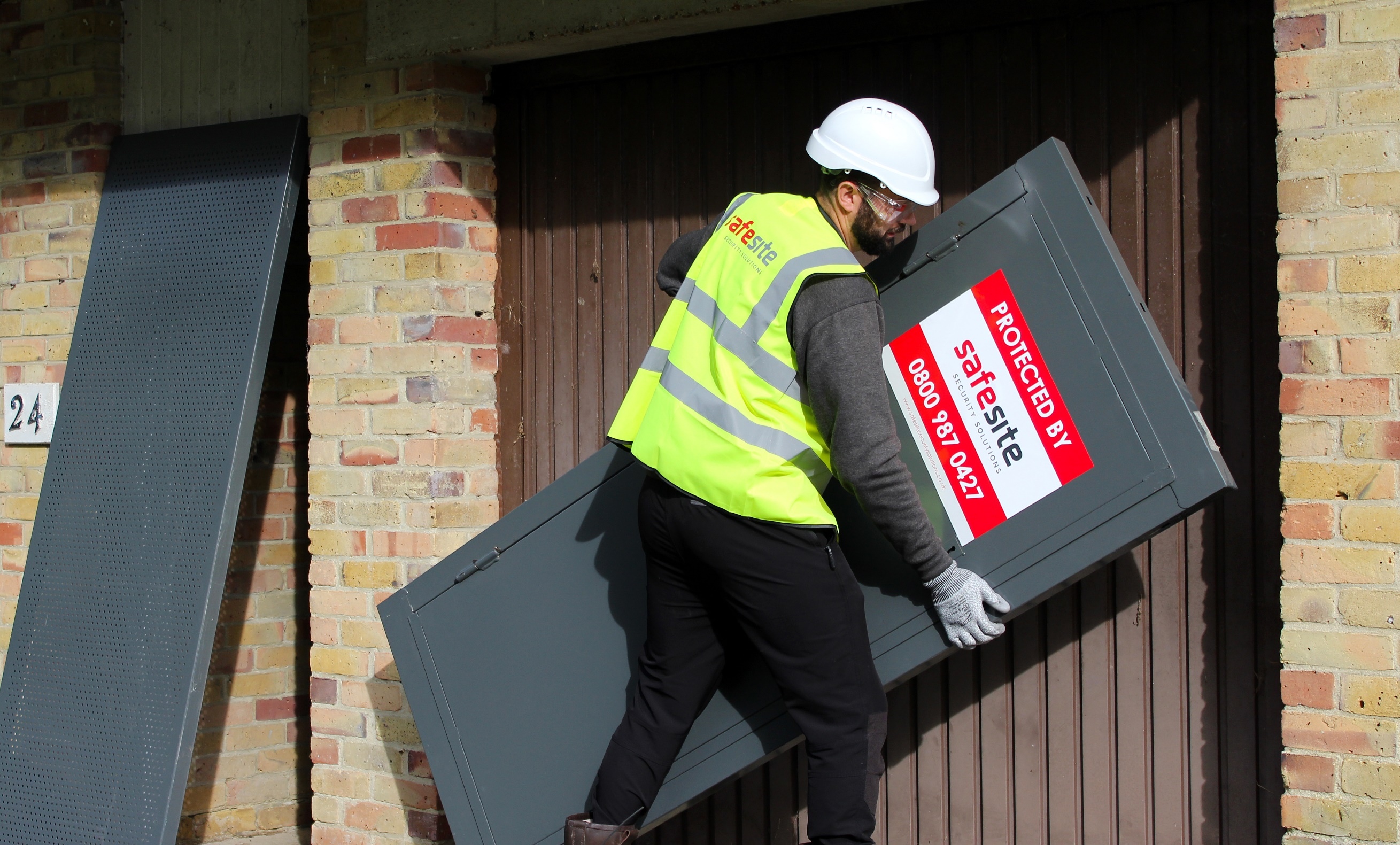If you're responsible for managing a portfolio of properties, chances are at some point one or more of these properties will be vacant. This isn’t a new challenge for property, facilities and estates managers but, in recent times, it has escalated, says SafeSite Security Solutions.
Covid-19 and the retreat of the High Street has caused a perfect storm of vacant shops up and down the country. The Ministry of Housing has knowledge of 648,114 empty domestic properties, a figure that has been steadily rising. And, the charity Habitat for Humanity estimates that the UK has 165,000 vacant commercial properties. There are many other statistics like these which paint a similar picture across different property types.
The modern world offers many solutions to old problems. And, in the case of securing vacant properties, there are myriad options to consider. What would you prefer on the windows – timber or steel screens? Security doors? Alarms? CCTV? Human presence?...
Deep breath. Let’s take stock. If you can understand the challenges your vacant property is likely to face, it makes selecting the most appropriate security solution simpler.
The problems associated with empty properties
These can be wide ranging and include vandalism, theft, accumulating waste, fire, storm damage, graffiti, squatters and destruction caused by flooding and burst pipes. Having a plan and measures in place from the start of the vacant period is a good strategy for minimising the likelihood of problems arising.
Different properties associate with different challenges and solutions. In general, commercial properties are at much more risk than domestic residential properties, as it’s a lot more obvious when commercial properties are vacant. People passing homes during the day expect them to be empty, with an understanding that the owners are likely out going about their daily lives. But, when commercial premises aren’t in use during the day, it’s noticeable. It’s worth noting that it’s illegal to squat, but only in residential property. So nowadays, squatters almost always target commercial buildings.
When it comes to vacant domestic properties, security solutions are mostly required where there’s a long-term vacancy or a specific, identified problem, such as evicted tenants seeking to get back inside a property.
There are also legal issues to contend with. Property owners have a duty of care, even to trespassing vandals and squatters. This mostly centres on ensuring you have the relevant signage in place relating to hazards. And, if you secure your property with anything dangerous – such as razor wire – making sure you abide by the height stipulations (2.4 metres).
How to protect your vacant property
Securing an empty property with security boards or screens to all access points – including doors, windows, basement casements and roof light windows – will help to prevent trespassing. Whilst standard security measures such as exterior lighting might be beneficial to every property, when it comes to boards and screens the most suitable solution will depend on the individual premises, environmental conditions and length of vacancy. Also think about your long-term requirements for the property. If you plan to rent your property out in the future, you’ll likely wish to install boards or screens which don’t damage the exterior. But, if demolition is on the cards, this will be less of a concern.
Timber boarding can be most cost-effective for securing a vacant property in the short term, such as after a fire or accident, or between tenancies, for example. On the other hand, steel security screens and security doors can be very cost-effective for long term and repeated use as their highly robust galvanised steel construction offers durability and strength. All designs offer tamper-proof fixings and are damage resistant, even against attempted break-ins using crowbars and hacksaws. As such, steel security screens are ideal if the interior of the property contains items of value, for instance metal fittings or construction tools needed when the property is undergoing renovation.
You may also require property surveillance, which could involve manned security or remote monitoring via CCTV and an alarm system. The latter may be a more effective approach for cost, response and overall efficiency and convenience. Whichever measures you take, managing a vacant property should also include regular human inspections and checks on the property.
SafeSite Security Solutions has more advice on their website if you wanted to do further research before making a choice about how best to secure your vacant property. Visit https://www.safesitesecuritysolutions.co.uk/knowledge-base/how-to-protect-secure-vacant-property-the-ultimate-guide for The Ultimate Guide.







































